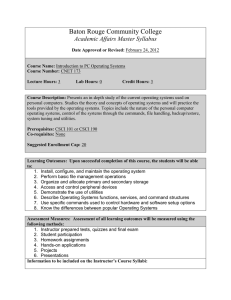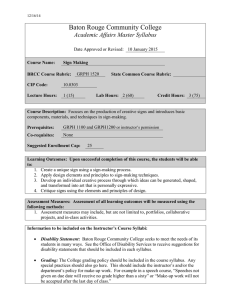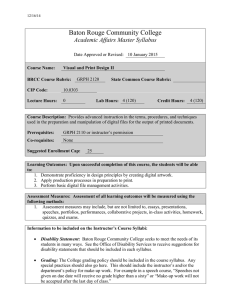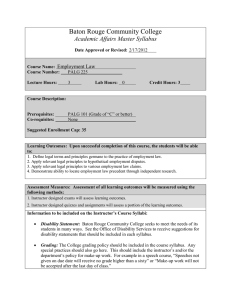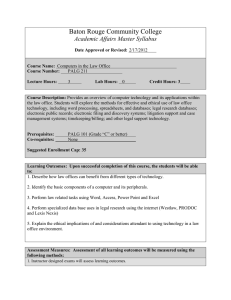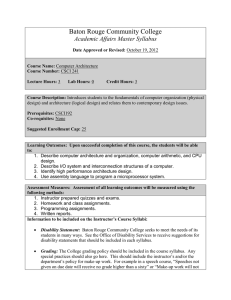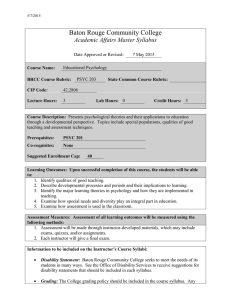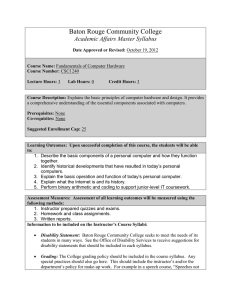Baton Rouge Community College Academic Affairs Master Syllabus
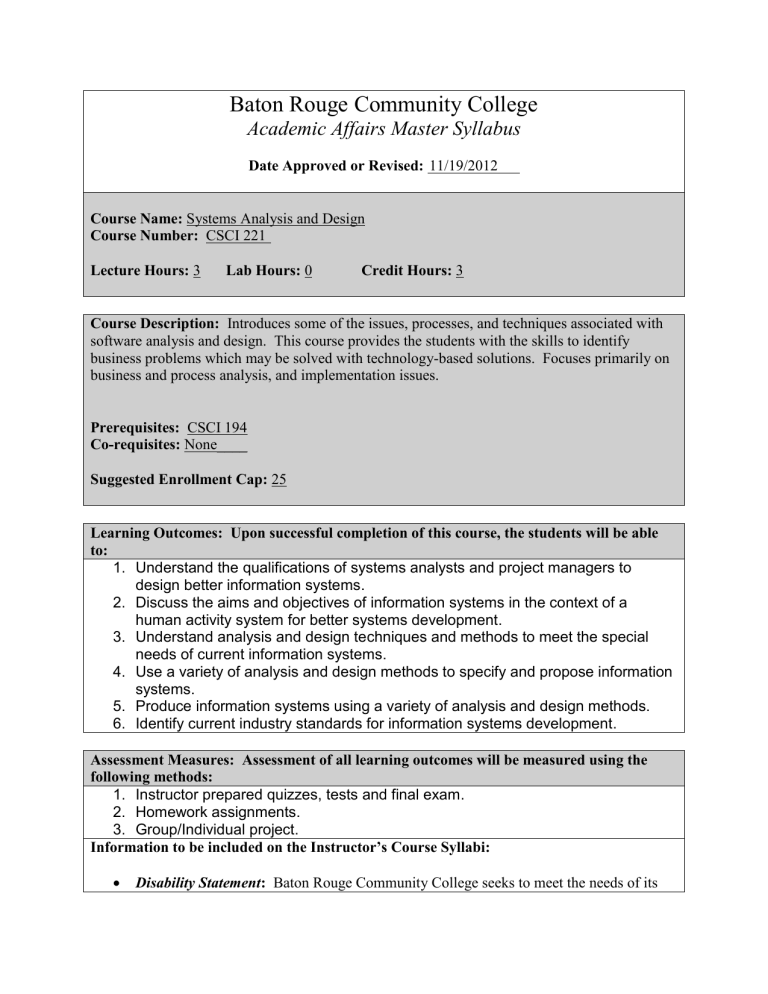
Baton Rouge Community College
Academic Affairs Master Syllabus
Date Approved or Revised: 11/19/2012
Course Name: Systems Analysis and Design
Course Number: CSCI 221
Credit Hours: 3 Lecture Hours: 3 Lab Hours: 0
Course Description: Introduces some of the issues, processes, and techniques associated with software analysis and design. This course provides the students with the skills to identify business problems which may be solved with technology-based solutions. Focuses primarily on business and process analysis, and implementation issues.
Prerequisites: CSCI 194
Co-requisites: None____
Suggested Enrollment Cap: 25
Learning Outcomes: Upon successful completion of this course, the students will be able to:
1. Understand the qualifications of systems analysts and project managers to design better information systems.
2. Discuss the aims and objectives of information systems in the context of a human activity system for better systems development.
3. Understand analysis and design techniques and methods to meet the special needs of current information systems.
4. Use a variety of analysis and design methods to specify and propose information systems.
5. Produce information systems using a variety of analysis and design methods.
6. Identify current industry standards for information systems development.
Assessment Measures: Assessment of all learning outcomes will be measured using the following methods:
1. Instructor prepared quizzes, tests and final exam.
2. Homework assignments.
3. Group/Individual project.
Information to be included on the Instructor’s Course Syllabi:
Disability Statement: Baton Rouge Community College seeks to meet the needs of its
students in many ways. See the Office of Disability Services to receive suggestions for disability statements that should be included in each syllabus.
Grading: The College grading policy should be included in the course syllabus. Any special practices should also go here. This should include the instructor’s and/or the department’s policy for make-up work. For example in a speech course, “Speeches not given on due date will receive no grade higher than a sixty” or “Make-up work will not be accepted after the last day of class.”
Attendance Policy: Include the overall attendance policy of the college. Instructors may want to add additional information in individual syllabi to meet the needs of their courses.
General Policies:
Instructors’ policy on the use of things such as beepers and cell phones and/or hand held programmable calculators should be covered in this section.
Cheating and Plagiarism: This must be included in all syllabi and should include the penalties for incidents in a given class. Students should have a clear idea of what constitutes cheating in a given course.
Safety Concerns: In some programs this may be a major issue. For example, “No student will be allowed in the safety lab without safety glasses.” General statements such as, “Items that may be harmful to one’s self or others should not be brought to class.”
Library/ Learning Resources: Since the development of the total person is part of our mission, assignments in the library and/or the Learning Resources Center should be included to assist students in enhancing skills and in using resources. Students should be encouraged to use the library for reading enjoyment as part of lifelong learning.
Expanded Course Outline:
I. The Foundations for System Development a. The Systems Development Environment b. The Origins of Software c. Managing the Information Systems Project
II. Planning a. Identifying Systems Development Projects b. Selecting Systems Development Projects c. Initiating and Planning Systems Development Projects
III. Analysis a. Determining System Requirements b. Structuring Process Requirements c. Structuring System Data Requirements
IV. Design a. Designing Databases b. Designing User Interfaces and Dialogues
V. Implementation and Maintenance a. Project Management b. System Implementation c. Maintaining Information Systems
